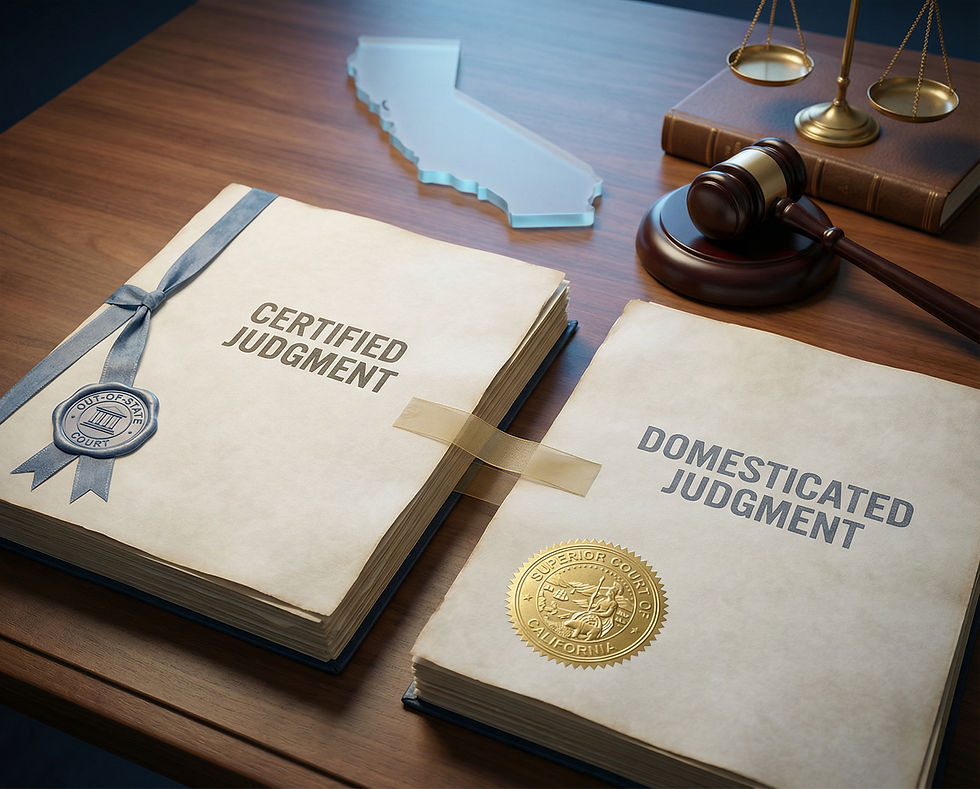Settlement Agreements in California: A Practical Guide
- Yakup Sari, Esq.

- Aug 10, 2025
- 3 min read

A Settlement Agreement is a legally binding contract that allows parties to resolve disputes outside of court—saving time, reducing costs, and avoiding the uncertainty of trial. In California, they are widely used in civil, intellectual property (IP), employment, and business matters.
A well-drafted settlement agreement sets out clear terms—such as financial compensation, behavioral commitments, or other obligations—that both parties agree to follow. This gives each side more control over the outcome and fosters a mutually beneficial resolution.
Key Legal Elements of Settlement Agreements in California
1. Mutual Consent
All parties must voluntarily and knowingly agree to the settlement terms.
If consent is obtained through misrepresentation, undue pressure, or from someone lacking legal capacity, the agreement may be challenged in court.
2. Consideration
A valid settlement requires an exchange of value—such as money, services, or a promise to drop legal claims. Without this mutual exchange, the agreement is not enforceable.
3. Waiver of Rights
Settlement agreements often include a waiver of rights clause, preventing future lawsuits over known and even unknown claims. This ensures finality and closure between the parties.
How Settlement Agreements Work in California
Negotiation – Parties discuss terms before, during, or after a lawsuit is filed.
Terms of Agreement – The final terms typically cover payment, waiver of claims, and any special conditions.
Written Agreement – Terms are documented in a signed, formal contract.
Court Approval (if required) – Some settlements, especially in employment or class action cases, require court approval to ensure fairness.
Enforceability – Once signed, the agreement is binding under California law.
Continuing Jurisdiction Clause – This allows the court to enforce the settlement without a new lawsuit if one party breaches.
Breach of a Settlement Agreement
If one party fails to comply, the other may seek:
Lawsuit to enforce the agreement
Compensation for financial losses
Specific performance (forcing the breaching party to fulfill obligations)
California courts take breaches seriously and will enforce terms unless they violate public policy. In disputes over interpretation, the court may issue an order, award damages, or even void the agreement in extreme cases.
Why Work with a California Settlement Agreement Attorney?
Settlement agreements may seem straightforward, but drafting and negotiating them requires precision. An attorney can:
Identify hidden risks or ambiguous language
Negotiate favorable terms
Ensure compliance with California law
Include enforcement provisions that protect your interests
Quick FAQs
Do I need a lawyer to draft a settlement agreement?
While not legally required, having an attorney ensures your rights are protected and the terms are enforceable.
Can a settlement agreement be broken?
Yes, but the breaching party risks legal enforcement actions, damages, and additional costs.
What makes a settlement agreement invalid?
Lack of consent, no consideration, or terms violating California public policy.
Can we settle after filing a lawsuit?
Absolutely. Settlements can be reached before, during, or even after trial—often with better results than litigation.
Final Thoughts
A California Settlement Agreement is a powerful tool for resolving disputes efficiently. Whether your case involves a civil matter, IP dispute, employment claim, or business disagreement, a well-crafted agreement can save time, reduce costs, and provide certainty.
Need help drafting, reviewing, or enforcing a settlement agreement? Contact SARI LAW FIRM today. We’ll guide you through every step—because informed agreements lead to stronger outcomes.




Comments